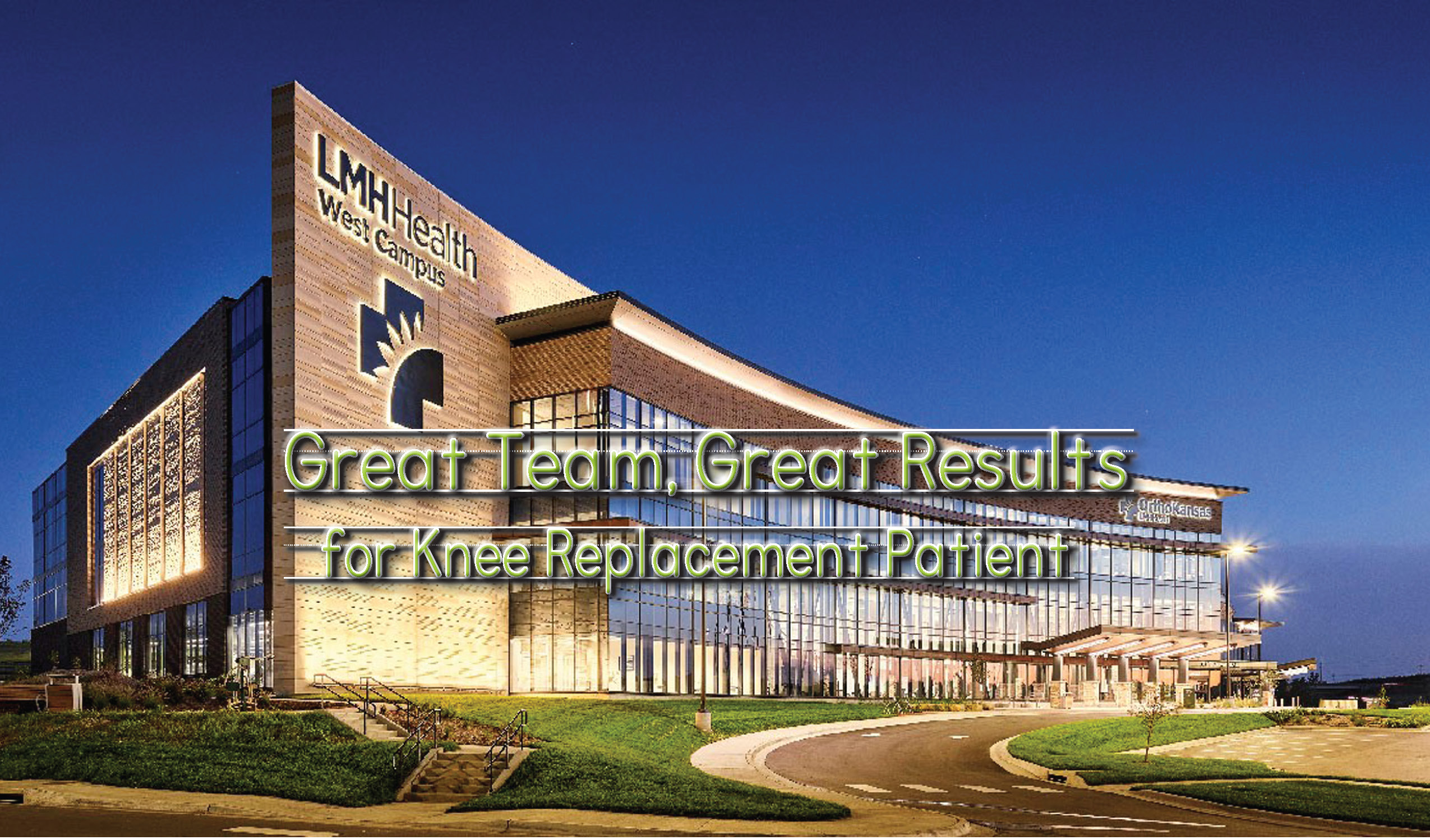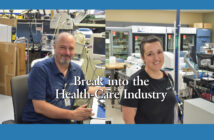Emergency Department
| 2015 Q3 | story by MEGAN BROCK & JANICE EARLY

LMH Emergency Department is Community’s Lifeline
Emergency Department physicians and nurses at Lawrence Memorial Hospital reach out to the community daily – usually without leaving the hospital campus. And it’s all in an effort to save lives and preserve patients’ quality of life.
One of the mantras in the Emergency Department is: time is brain. Minutes matter. Seconds matter.
That’s why LMH’s Emergency Department and area emergency responders team up. It’s important to save precious time.
“We really encourage our community to call 9-1-1,” said Patti Doncouse, RN, BSN, who has been Emergency Department director at LMH for about a year. “If you call 9-1-1, the ambulance will arrive and the paramedics will start treatment, based on the patient’s complaint and their assessment. Then they will radio in and give us a report.”
This coordinated effort means LMH is better able to prepare for patients arriving by ambulance. The delay in treatment for patients arriving in a private vehicle versus an ambulance may be five to seven minutes.
LMH’s Emergency Department records about 37,000 visits annually, with an average of 105 patients seen daily. That’s an increase of about 8,000 visits a year since 2005, before an extensive renovation of the Emergency Department and several other areas at LMH.
Kenna Young, clinical nursing manager in the Emergency Department, sees first-hand how the renovation has affected patients and staff.
“One goal of the renovation was to improve length of stay,” Young says. “We can take more patients at one time, and we can get to them quicker.”
LMH Emergency Department patients’ top five health concerns are abdominal pain, chest pain, extremity pain, cough and headache. A total of 85 percent of those patients are seen, treated and then discharged or admitted into the hospital in less than three hours.
Although patients visit the Emergency Department for treatment, it’s also a place for patients to learn about how to prevent and recognize medical conditions early in hopes of avoiding emergencies.
“The emergency department at LMH is patient-centered,” Doncouse says. “All of the decisions we make put the patient first.”
— Megan Brock, Lawrence Memorial Hospital Endowment Association intern
Don’t use Emergency Department for Convenience
Dr. James Herrin, a board-certified emergency physician at Lawrence Memorial Hospital, says many emergency visits are not for life-threatening illnesses or injuries but for minor medical problems that could be handled more cost effectively in a doctor’s office.
“The emergency department is your community’s lifeline,” says Dr. Herrin. “Use it prudently – for true emergencies rather than convenience.”
A report presented last year to the LMH Board of Trustees showed that nearly one-third of the visits to the LMH Emergency Department probably didn’t require emergency treatment. Most of these visits were for minor medical problems that could be handled more cost effectively in a doctor’s office or urgent care setting.
Hospital emergency departments are set up to focus on severe and life-threatening medical emergencies, not routine health care problems. They have specially trained doctors, nurses, paramedics and other support staff who can recognize, diagnose and treat a wide variety of medical issues and they have the medical technology and equipment at hand.
Emergency treatment costs significantly more than a doctor visit; an emergency visit for an earache will likely cost hundreds of dollars more than it would at your doctor’s office or walk-in clinic, and you will likely spend a lot more time plus receive care from a doctor who has probably never before seen you. It’s always best to get as much of your care as you can from a health care provider who knows and understands you.
Dr. Herrin advises that if you have questions about whether a problem requires emergency treatment, first call your primary care provider, who is best able to give advice and follow-up care based on your personal health history.
Dr. Herrin adds, “If you can’t reach your doctor and don’t know, we’d obviously rather see you and help you figure things out.”
Of course, if there’s a possibility that you may be having a stroke, heart attack or other life-threatening emergency, you should never waste time pondering a decision and immediately call 9-1-1. According to the American College of Emergency Physicians, warning signs of a medical emergency include heart attack and stroke symptoms, not being able to breathe, severe and uncontrolled bleeding, change in mental status, coughing up or vomiting blood, head injury, or sudden and severe pain anywhere in the body.
And the best advice to stay out of the ER is to take good care of yourself. Stay healthy by eating a nutritious diet, exercising regularly, not smoking, obtaining routine medical care, and treating minor illnesses before they become major emergencies.
— Janice Early, Lawrence Memorial Hospital Vice President of Marketing and Communications




3 Comments
Thank you ever so for you blog article.Thanks Again. Much obliged.
I’m really enjoying the design and layout of your blog. It’s a very
easy on the eyes which makes it much more enjoyable for me to come here and visit more often. Did you hire out a designer to create your theme?
Great work!
I every time used to read article in news papers but now as I am a user of net so from now I am using net for articles,
thanks to web.